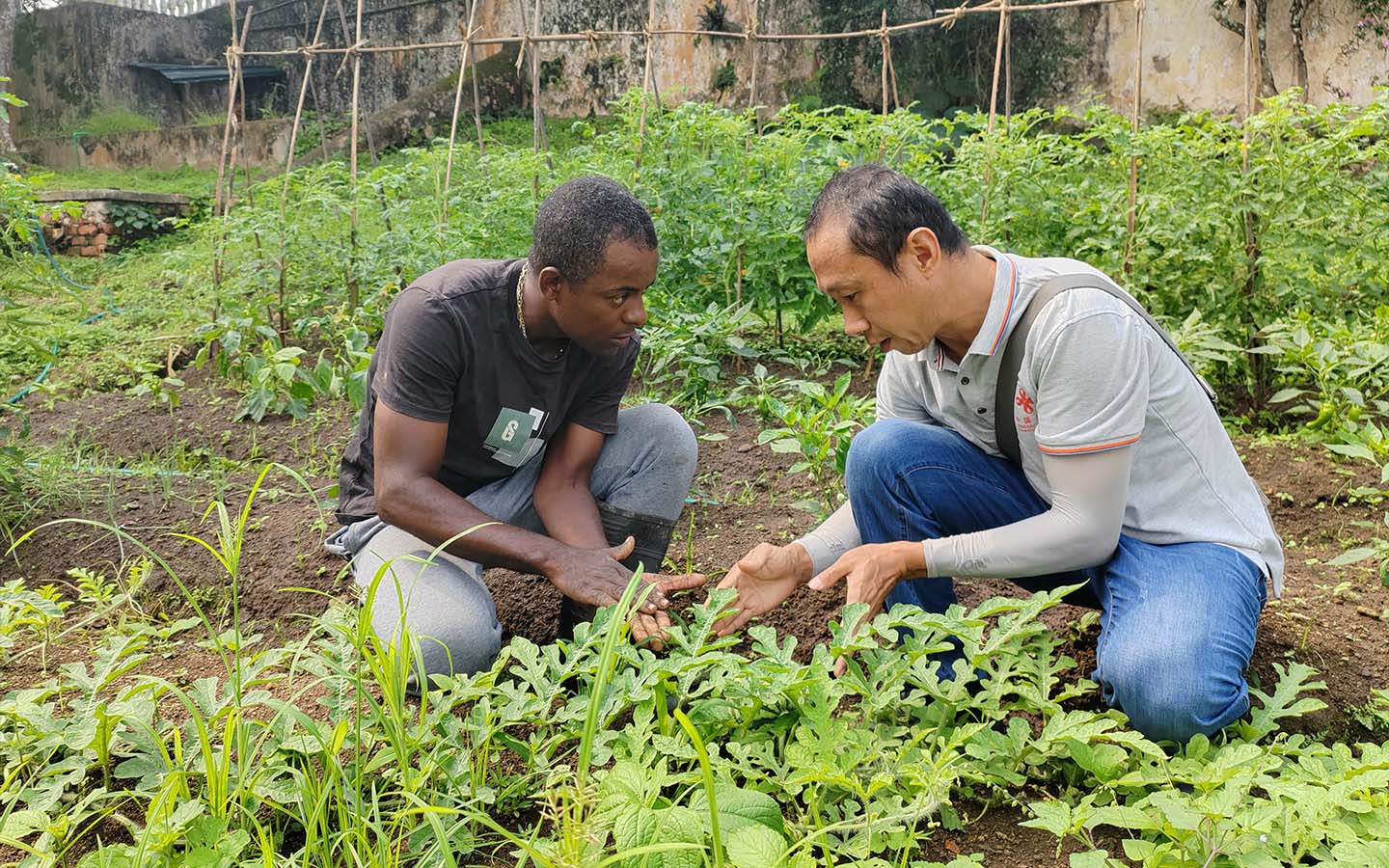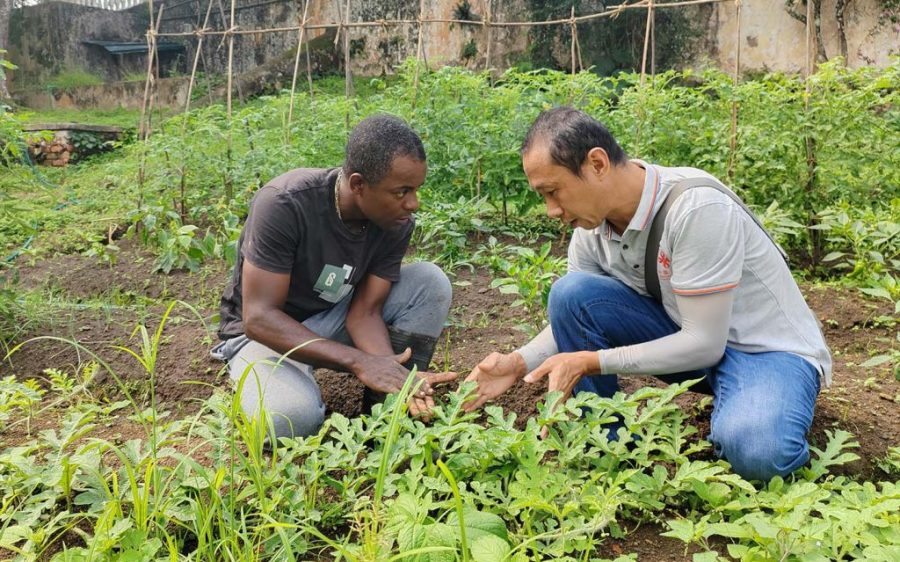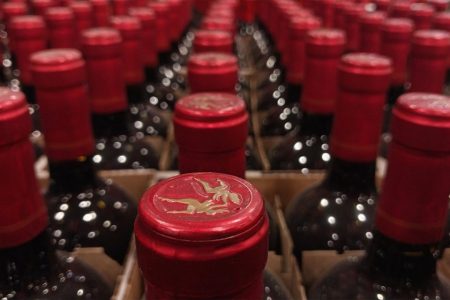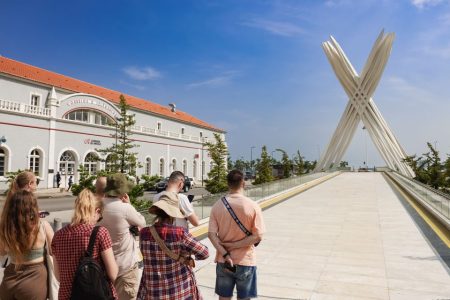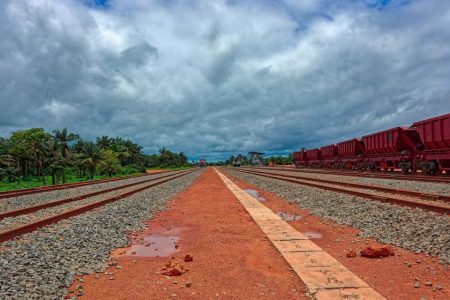As the rainy season kicks off in São Tomé and Príncipe, many local farmers are looking forward to more bountiful – and profitable – harvests thanks to support from Chinese agricultural experts.
They include Jamaika Martins, 32, who recently harvested his first batch of Chinese bok choy on a “palm-sized” piece of land near the village of Nova Moca. According to China’s state-run Xinhua news agency, bok choy is one of 14 high-yield vegetable varieties identified by Chinese agricultural experts after months of field trials on the ground in São Tomé. Others include eggplant, chilli peppers, zucchini and bell peppers, a crop where Martins says Chinese experts helped him nearly double his yield through improved seedling cultivation and sustainable practices like weed composting.
Improved yields mean more affordable food for the small island nation. It currently imports more than half its food, leading to fluctuations in food prices that leave over half the population struggling with moderate to severe food insecurity, according to the UN Food and Agriculture Organization. Increasing the supply of local agricultural products is crucial to improving food security.
[See more: São Tomé and Príncipe has run out of money to pay for imports]
São Tomé and Príncipe is well situated to improve its agriculture. Rich volcanic soil and a tropical climate allowed the then-Portuguese colony to become the world’s largest cocoa producer within a century of the plant’s introduction. This intense focus on cocoa, however, meant few resources went to cultivation of other crops and vegetables, imperilling local communities.
China began assisting São Tomé and Príncipe with agricultural development in 2017, Xinhua says, sending experts to work with local authorities to improve farming practices. The programme established livestock and veterinary demonstration bases, high-yield crop cultivation areas and poultry breeding centres on the islands. Two villages, including Nova Moca, now serve as model poverty-alleviation sites, showcasing how much agricultural innovations can benefit local communities.
“Our goal is to use local resources and introduce better farming techniques to help farmers improve yields and incomes,” Peng Jie, a vegetable cultivation expert working in the programme, told Xinhua. The São Toméan agriculture minister Abel da Silva Bom Jesus agreed, calling the training “crucial” to effective land use. He emphasised the importance of scientific knowledge in enabling farmers “to produce higher-quality crops while also preserving the environment” – an effort in which China is the “key partner.”
